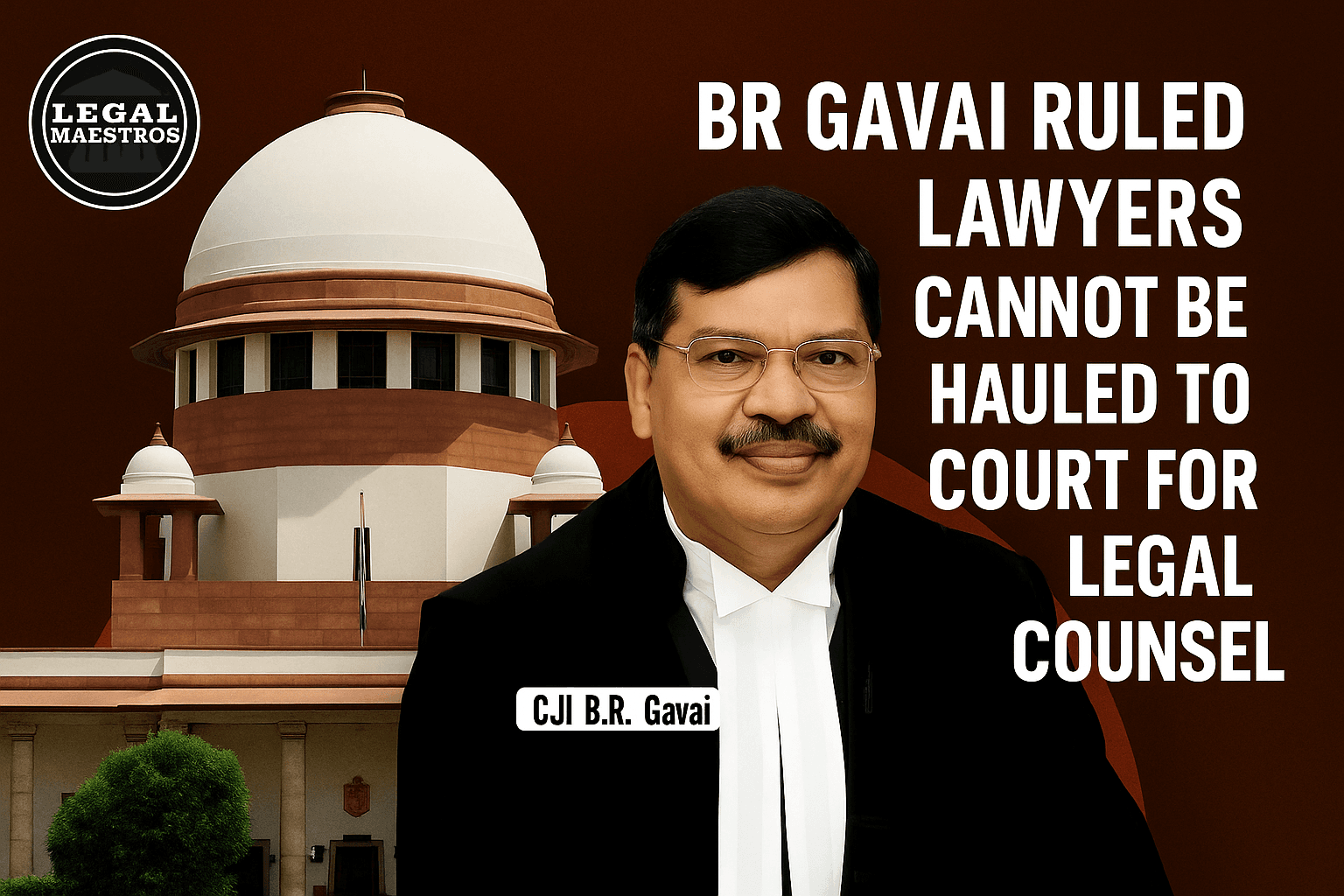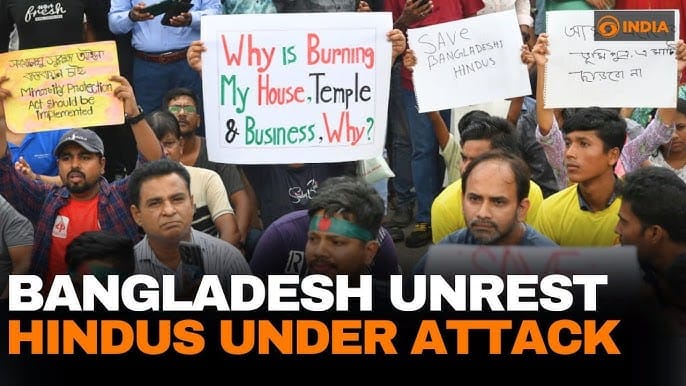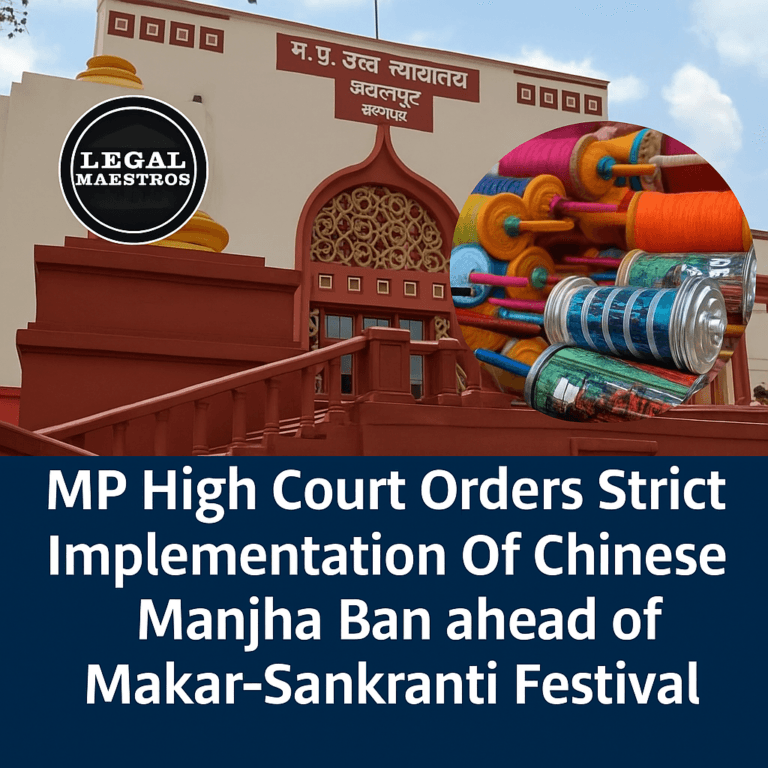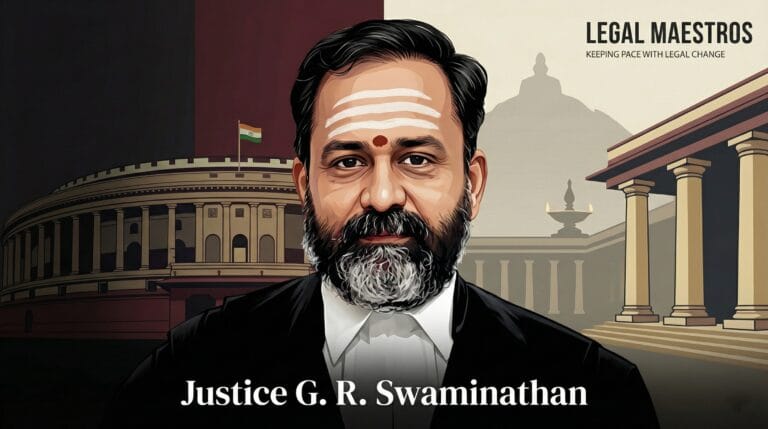
BR Gavai Ruled lawyers cannot be hauled to court for legal counsel
Lawyer-Client Privilege is Defended by Supreme Court.
The Supreme Court of India, under the leadership of Chief Justice, B.R. Gavai, has made a ground breaking decision that the lawyers are not supposed to be summoned by the investigating agencies to reveal their communication with their clients. The court asserted that an advocate cannot be dragged to court and even interrogated by the police because he or she is giving legal advice. This monumental ruling goes a long way in upholding this attorney client privilege which is the foundation of the justice system.
It was decided by a three-judge bench that also comprised of Justice K. Vinod Chandran and Justice N.V. Anjaria. The case had been filed at the court, su motu, or on its own initiative, following a worrying pattern of the probe agencies calling on advocates. The question became national when the Enforcement Directorate (ED) called senior lawyers to appear over a case that involved their clients a move that was greatly criticized by the bar associations.
Dissatisfaction with this practice was made known by the bench, which claimed that the coercion of a lawyer into disclosing confidential information told by a client is an outrageous infringement of the rights of the client. The court pointed out that the kind of relationship which exists between a lawyer and their client is founded on the notion of trust. Legal profession would not be run and the process of justice administered without this trust.
For any queries or to publish an article or post or advertisement on our platform, do call at +91 6377460764 or email us at contact@legalmaestros.com.
The ruling explains that the work of a lawyer is to offer the best protection to his or her client in accordance with the law. The court said that investigating officers have to discover their own evidence of a crime and could not count on the fact that their investigation failed so dismally to violate the confidential relationship between an accused individual and his or her lawyers.
Sanctity of Confidential Communication.
The whole decision by the Supreme Court is founded on the significance of the lawyer-client privilege. According to this law, an advocate may not be coerced, or even allowed, to reveal any confidential communication received by an advocate on behalf of seeking legal advice, except on express permission by a client.
In its ruling, the bench said that this privilege does not serve the interests of a lawyer, but those of a client. The client must be able to fully speak to his lawyer frankly and without any fear. This privilege was directly connected to the constitutional protection against self-incrimination which is in Article 20(3) and which provides that no individual should be compelled to testify against him or herself.
According to the bench ruling made by Justice Gavai, when police were allowed to make a lawyer come and ask their client what he or she said, it would be like compelling a client to give a witness against himself or herself. This would ruin the foundation of a just trial. The court indicated that the status of trust that an attorney has cannot be challenged by the effort to violate the professional trust.
The court made it clear that this protection does not apply only to lawyers in a courtroom but also to lawyers that provide legal advice on issues outside a courtroom. This would guarantee that an individual seeking legal advice would be totally open. The court did however make clear that this high level of protection is not applicable to the in-house counsel who are full-time paid salaried workers of a firm since they are not regarded as being practising advocates under the Advocates Act.
When a Lawyer Can Be Summoned
Although this was a powerful shield drawn by the court, it has also made it clear that this is not a blanket immunity. Lawyers are not above the law. Section 132 of the BSA has certain exceptions to the privilege. The lawyer may be called to testify and compelled to provide information when the communication was conducted in an attempt to advance any illegal object or where the lawyer was witnessing a crime or fraud committed.
Consider an example, when a client is trying to consult an advisor about the way to commit a crime or money laundering, such information is not privy. The attorney in such a case is not performing the role of a legal consultant but is himself a party to a crime. The court affirmed that the privilege is inapplicable to those advocates who assist or plan an offense with one of his clients since this is out of his professional obligation.
The Supreme Court devised a new, tight procedural protection in order to prevent misuse of such exceptions by investigating agencies. An investigating officer cannot anymore independently make the decision to invite a lawyer. It is now necessary to have this decision reconsidered and endorsed by a superior officer so that they are not just the random acts of harassment.
According to the decision made by the court, a summons to an advocate should not be issued unless it specifies facts on which exception is desired to be invoked. Moreover, the summons should be made with the previous written authorization of a superior officer, who should not be less than a Superintendent of Police. This senior officer is required to put on record his/her satisfaction of the reasonableness of the summons on one of the special exceptions.
New Regulations on the seizure of Digital Devices.
The other issue covered by the court on the current-day challenge is the seizure of the digital devices used by lawyers such as mobile phones and laptops by the police. The bench realized that these devices are a virtual office and they hold confidential information of many clients, not only of the person being investigated. A roving or fishing investigation into such a device would be an enormous violation of privilege to all those other clients.
To curb this, the court has established a new, compulsory process. In case an investigating officer wishes to search a lawyer in his/her digital machine, he/she can only order to produce it before the Jurisdictional Court. The attorney is not required to give out his or her phone or laptop in the hands of the police officer. This puts an impartial judge as the gate keeper.
After the production of the device in the court, the judge is not able to just hand it over to the police. The court has to first give a notification to the client and the lawyer of the case.






